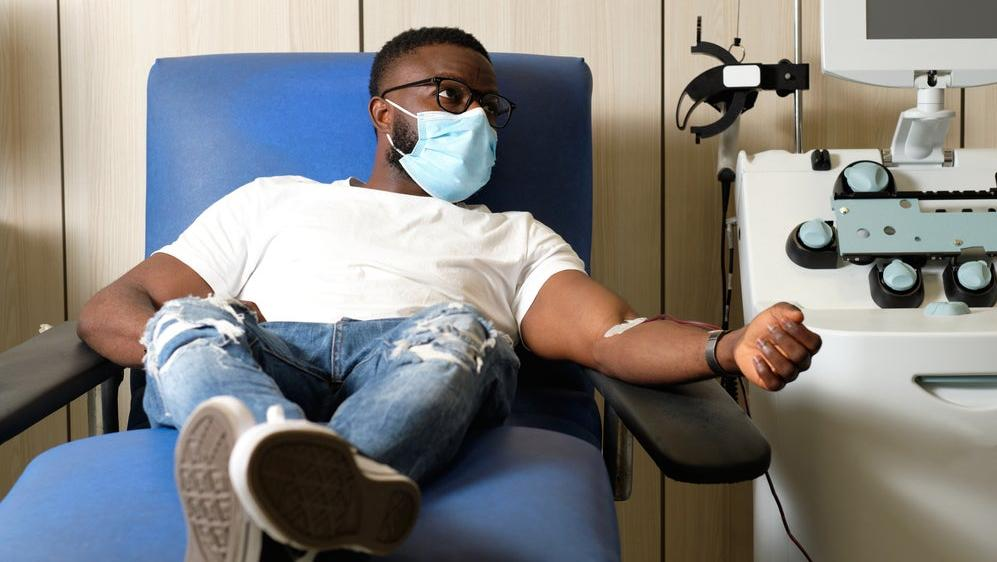What You Should Actually Eat And Drink After Giving Blood
Are cookies and juice really the best way to refuel after a blood donation?
Giving blood for the first time can be a nerve-racking experience: You're sitting and watching an entire pint of your own blood travel up a see-through tube and into a plastic bag while your seat neighbor does the exact same thing. The common post-donation snack of cookies and juice—occasionally pizza—feels like a well-deserved reward for muscling through the whole process.
But is there any medical basis for the post-donation sugar bomb, other than soothing your frazzled nerves? And why aren't donors given more iron-rich foods to help replenish their blood supply? The American Red Cross website doesn't offer any particular explanation for why some snacks are better than others, though the organization did say in a general email statement to The Takeout that sweet treats should be eaten afterward to "stabilize your blood sugar levels."
As we found out, however, there is in fact a reason for the classic cookie-and-juice duo—though the pairing itself isn't mandatory.
Why cookies and juice are standard post-blood-donation snacks
It may seem obvious, but when you lose that pint of blood—approximately one-tenth of your total blood supply, according to the Red Cross website—you're also losing fluids. Juice can be a good way to replenish these, but it's not required, explained Dr. Martin Bluth, Chief of Blood Transfusion and Donor Services at Maimonides Medical Center in New York. Instead, you can reach for plain water.
"Water is absolutely the best thing to drink after a donation," Bluth said.
The sugar, both in the juice and the cookies or other snacks, is mostly meant to give you a boost after losing a pint of body fluid, a loss that can often lead to wooziness. "You're talking about a quick energy moment," said Bluth.
Some donors, he explained, don't actually eat anything before getting blood drawn, which may compound the wooziness issue. Having a quick shot of energy helps them get out the door without fainting, and tides them over until their next meal.
Dr. Bluth also pointed out that every blood donation center offers a different variety of snacks: many offer cookies and juice, but others might also provide granola bars, fruit, or other easy-to-grab items. That variety is also based to some extent on the community a particular donation center serves: at Maimonides, for example, many donors eat a kosher diet.
Should you eat a lot of iron before and after giving blood?
All that being said, there must be some truth to the whole "eating iron-rich foods" advice, right? Does a blood donation give the donor carte blanche to eat as many iron-rich foods as possible?
Not exactly, explained Dr. Bluth. Instead, donors should focus on eating a balanced diet with a variety of nutrients, not just iron, to maintain healthy blood levels.
"If you otherwise eat a regular, appropriate diet, rich in fruits, vegetables, whole grains, and other foods which contain iron, and you're eating that in general, you will have no issue," said Bluth.
So basically, you don't have to go completely ham (or steak, or pork chops...sorry) on the iron-rich stuff.
If you have an existing iron deficiency, however, such as low levels of hemoglobin, the protein that contains much of the iron in our blood, you will be asked to wait until your levels return to normal before donating. The Red Cross and other blood donation centers test your hemoglobin levels prior to drawing blood, so you shouldn't worry too much.
Find the nearest blood drive on the Red Cross website. If you live in the New York City area, please consider donating blood to Maimonides Blood Donor Center.
